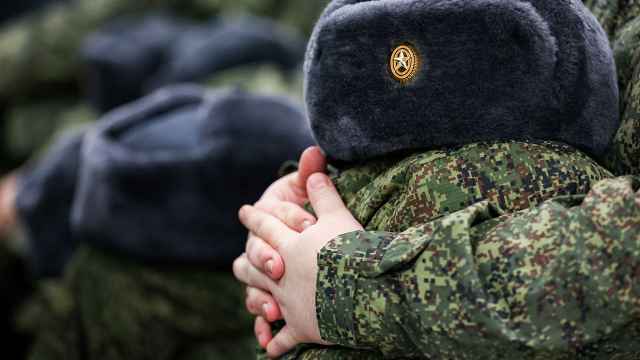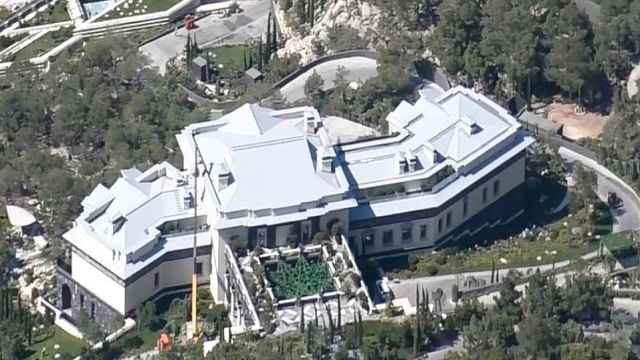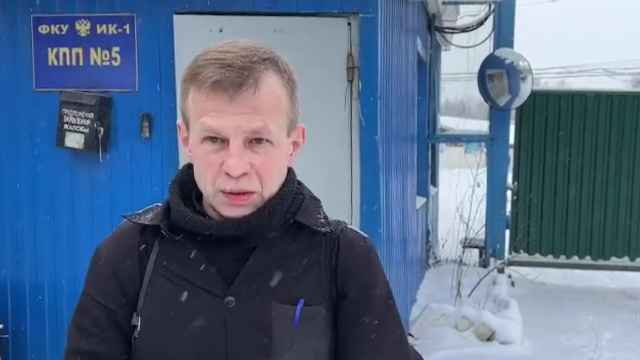BLAGOVESHCHENSK — Russia's economy is at risk of sliding into recession by autumn and the government may need to implement stimulus measures to shore up growth, Economy Minister Andrei Belousov said.
"We are not in recession for now, but we may get there — there is such a risk," Belousov told reporters Friday, a day after his ministry slashed its growth forecast.
"I think that if by autumn we don't see growth for some period, we may slide into recession."
A year after Vladimir Putin returned to the Kremlin with calls for a "new economy" to boost investment and shake up state-run industries, Russia's $2.1 trillion economy is close to stagnating.
The Economy Ministry on Thursday cut its growth forecast for this year by a third to 2.4 percent, which would be Russia's worst showing since 2009, when the economy contracted sharply as a result of the global financial crisis.
Russia's GDP grew at around 1 percent in the first quarter, weighed down by lackluster investment and a decline in exports of strategic commodities such as natural gas that were hit by a slump in the European market.
The debt crisis in eurozone member Cyprus, a financial center through which a quarter of Russian foreign investment and lending flows, has heightened concerns, meanwhile, that the Russian economy will be starved of capital.
Belousov's warning is part of a debate over whether the economy needs monetary stimulus to boost growth nearer to the Kremlin's target rate of 5 percent.
Putin's choice to run the central bank, Elvira Nabiullina, has emphasized growth as a key policy goal and dialed back ambitions for reducing inflation that, at over 7 percent, is now running above target.
Economists expect the central bank to cut rates at the latest when Nabiullina takes office in June, although with Russia on the brink of stagflation many argue that structural reforms, not rate cuts, are what the economy really needs.
Russia instituted a new fiscal rule last year that ties spending to a historical average of prices for oil — Russia's main export — while capping the budget deficit at 1 percent of gross domestic product.
That may restrict the government's ability to ramp up state spending, but does not rule out other measures designed to improve Russia's investment climate and boost the flow of credit into the economy.
"We will propose economic stimulus measures. We will have a meeting with the president," said Belousov. "Measures should be taken, as we need to solve the situation we got into in order not to slide into recession."
Russia's postcrisis recovery has been heavily dependent on the consumer, while a hefty increase in government spending before Putin's election in March 2012 to a third Kremlin term also kept the economy ticking.
The weakening outlook does not necessarily herald a full-blown recession, defined in economics textbooks as two consecutive quarters of negative growth.
The government is, meanwhile, considering ramping up sales of state assets to raise funds that could be committed to stimulus spending, including the possible sale of a 19.5 percent stake in state oil major Rosneft.
"Although we don't expect Russia to fall into recession, authorities' concerns are understandable and a moderate monetary or fiscal stimulus would be appropriate, in our view," said Anatoly Shal, chief economist at J.P. Morgan in Moscow.
"In fiscal policy, using a back door to bypass the budget rule would be one way to respond to economic weakness," Shal added.
A Message from The Moscow Times:
Dear readers,
We are facing unprecedented challenges. Russia's Prosecutor General's Office has designated The Moscow Times as an "undesirable" organization, criminalizing our work and putting our staff at risk of prosecution. This follows our earlier unjust labeling as a "foreign agent."
These actions are direct attempts to silence independent journalism in Russia. The authorities claim our work "discredits the decisions of the Russian leadership." We see things differently: we strive to provide accurate, unbiased reporting on Russia.
We, the journalists of The Moscow Times, refuse to be silenced. But to continue our work, we need your help.
Your support, no matter how small, makes a world of difference. If you can, please support us monthly starting from just $2. It's quick to set up, and every contribution makes a significant impact.
By supporting The Moscow Times, you're defending open, independent journalism in the face of repression. Thank you for standing with us.
Remind me later.





